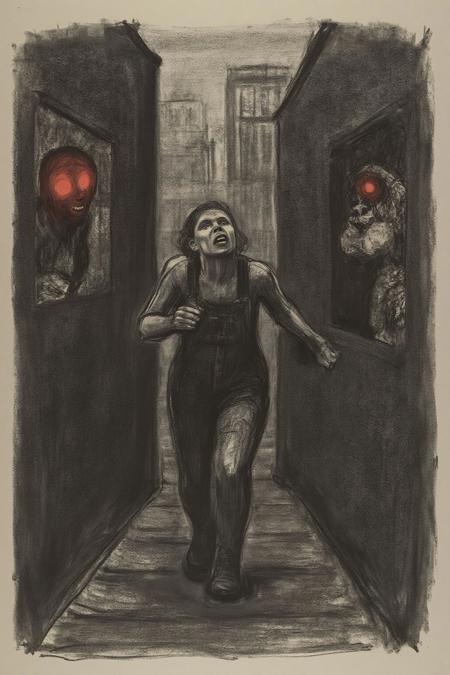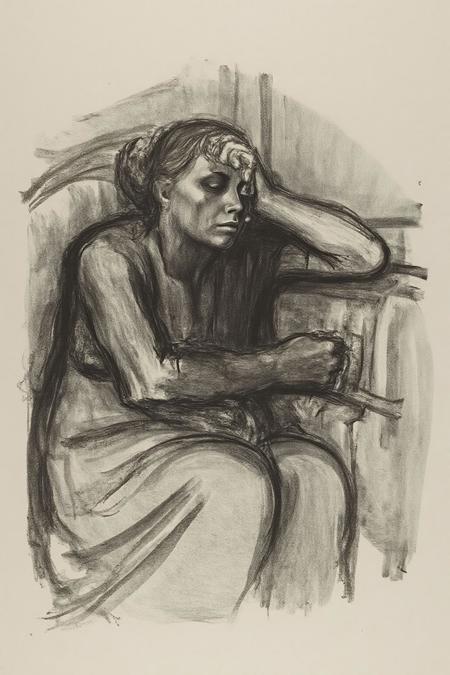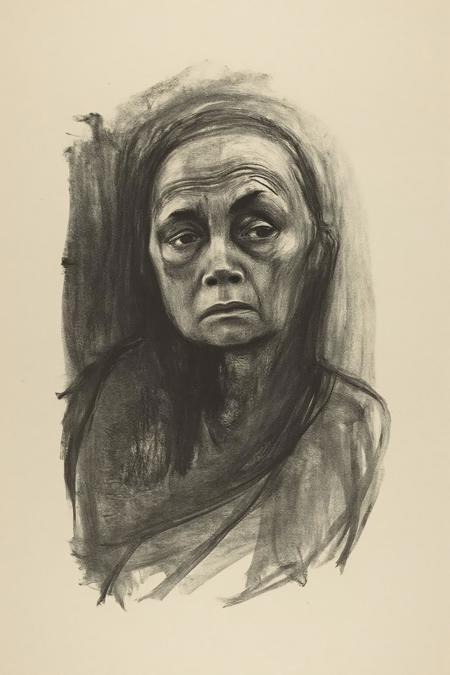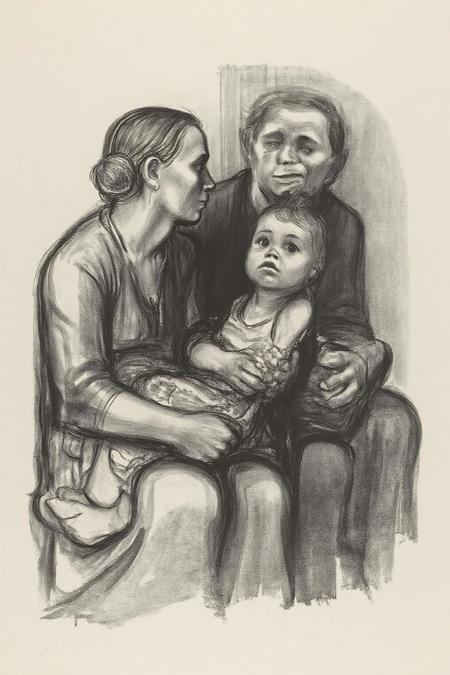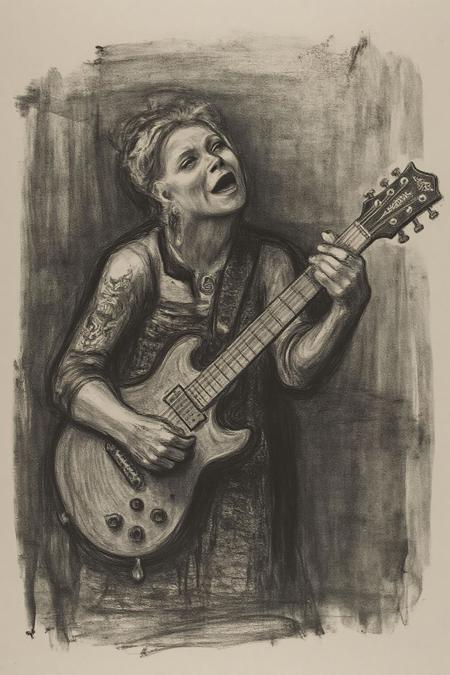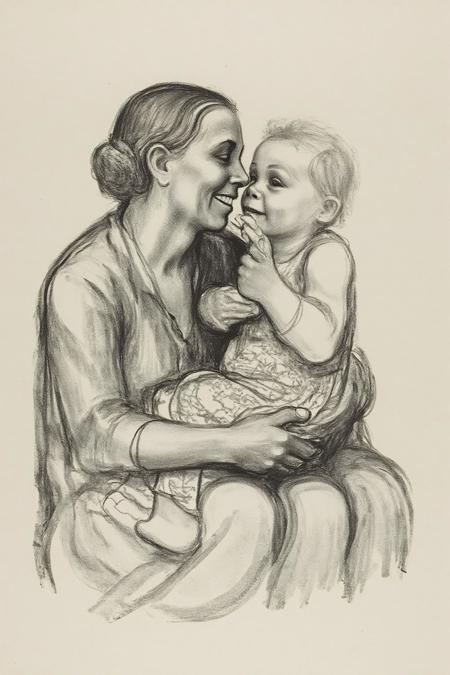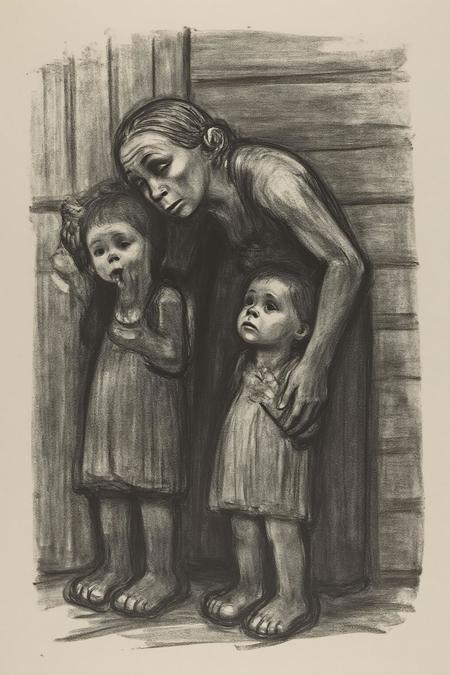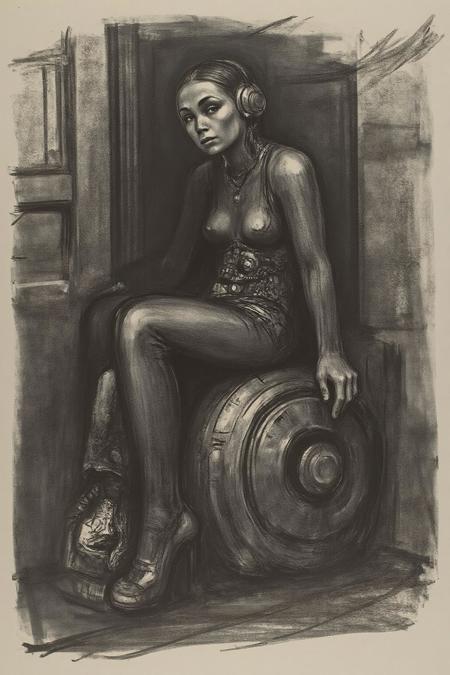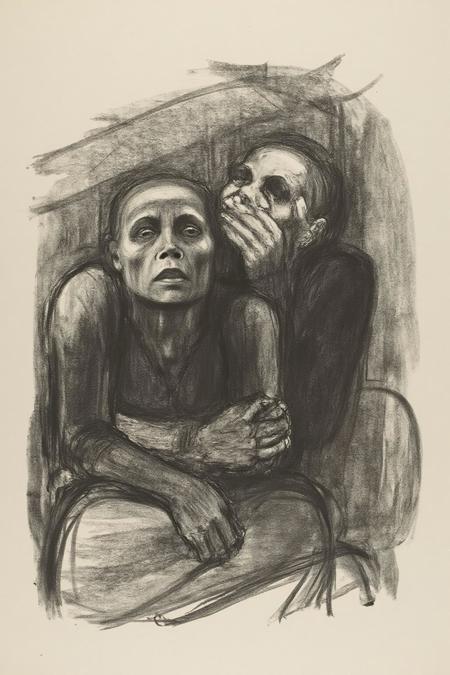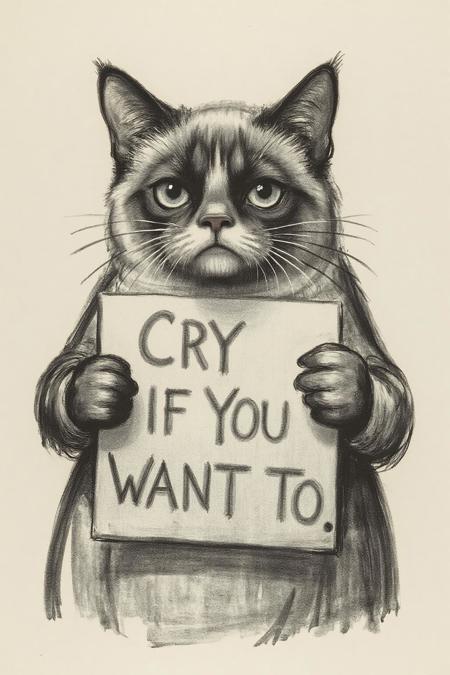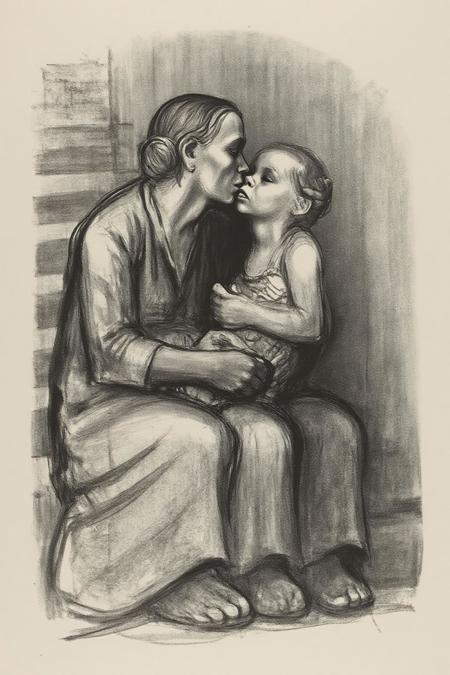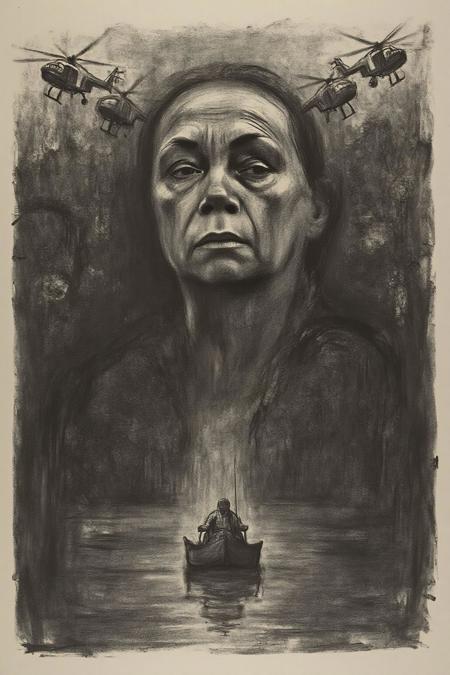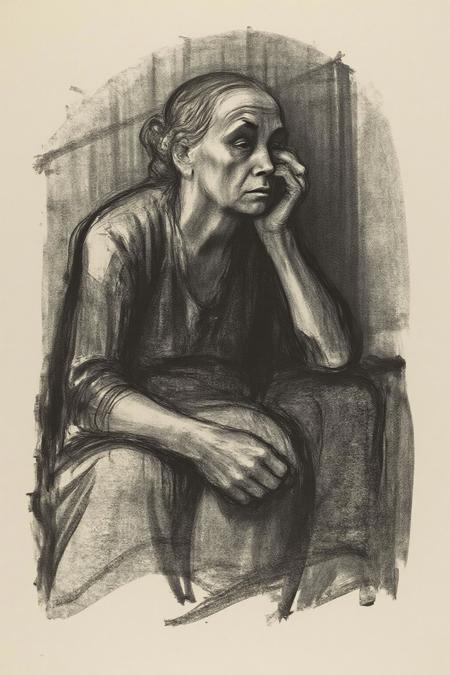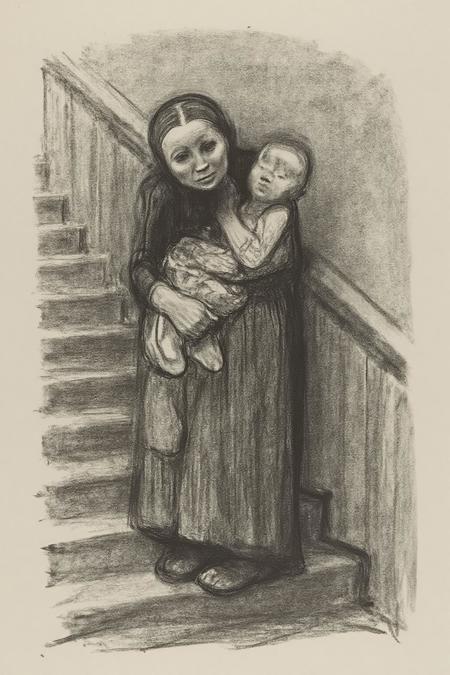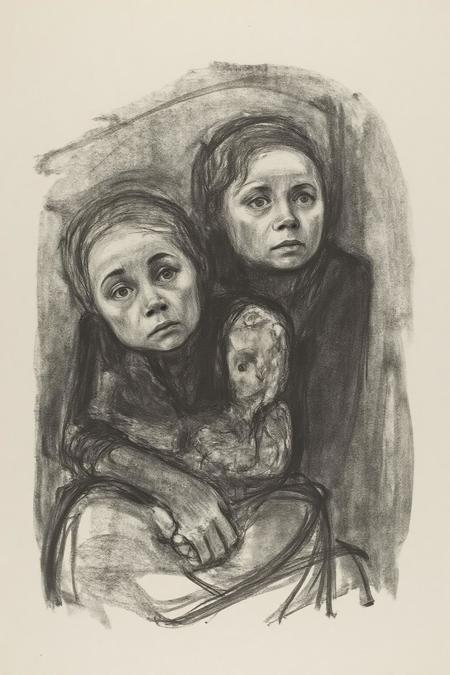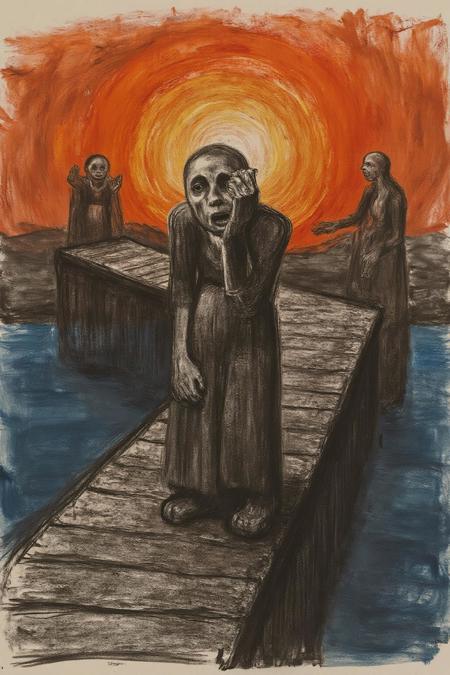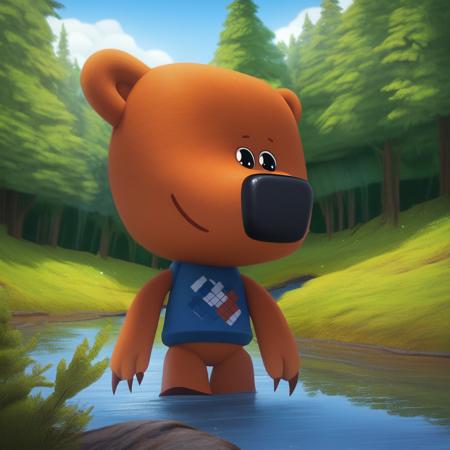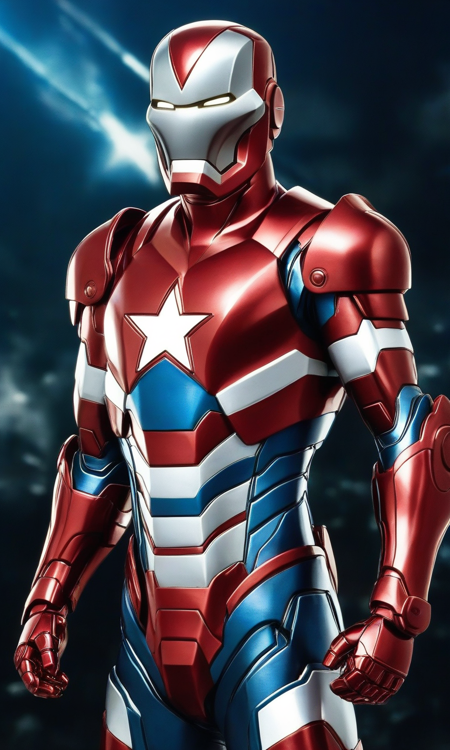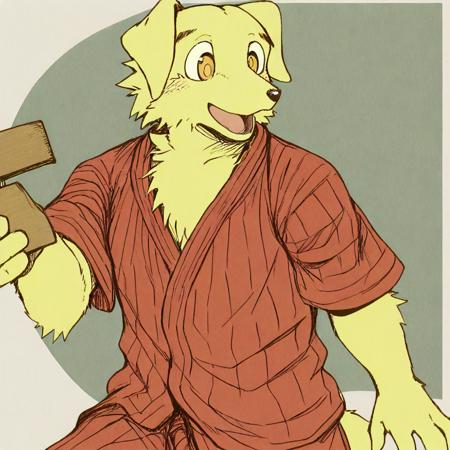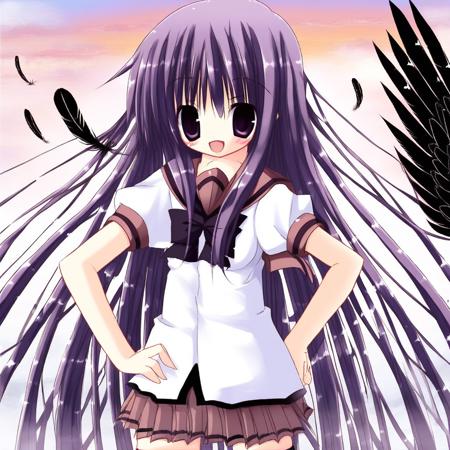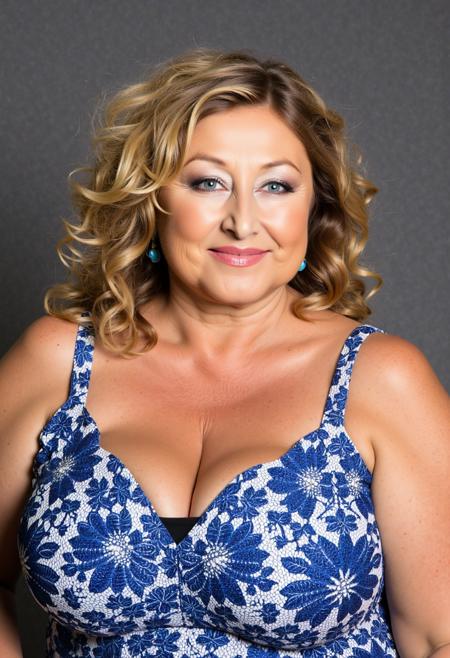
Trained on nineteen lithographic prints by Käthe Kollwitz. Please go to https://www.kollwitz.de to check out her powerful, moving body of work.
I plan to make at least one more LoRA based on her woodcut or etching prints.
Even though "black and white drawing" works, "black and white charcoal drawing" seems to work the best. Use weight of 1 to get the full effect.
Known problems:
-
Almost everybody looks a bit like Käthe Kollwitz (specially the women). She often uses herself as the model, so there is not much one can do about that ?
-
Almost everything the model produces is kind of dark and depression. This is both a bug and a feature.
From ChatGPT:
Käthe Kollwitz (1867/07/08–1945/04/22) was a German artist and printmaker renowned for her emotionally powerful works that depict the struggles of the working class, the impacts of war, and the plight of women and children. Through her exceptional skill in etching, lithography, woodcut, and sculpture, Kollwitz became one of the most influential artists of her time, blending social critique with deep human empathy.
Early Life
-
Birth and Family:
-
Born on July 8, 1867, in Königsberg, East Prussia (modern-day Kaliningrad, Russia), as Käthe Schmidt.
-
Her family was progressive, socially conscious, and supportive of her artistic talents.
-
-
Education:
-
Studied at the Women’s Art School in Berlin and later at the Munich School for Women Artists.
-
Influenced by realist painters and printmakers like Max Klinger, whose work emphasized the human condition.
-
-
Marriage:
-
Married Karl Kollwitz, a physician who treated working-class patients. His dedication to the poor greatly influenced Käthe’s themes of social injustice.
-
Artistic Career
-
Themes:
-
Social Struggles: Her early work focused on the hardships of the working class, inspired by her husband’s patients and the growing socialist movement.
-
War and Loss: The devastating impact of World War I and the death of her son Peter at the front deeply influenced her later works.
-
Motherhood and Suffering: Her portrayals of mothers protecting their children and grieving families became iconic.
-
-
Mediums:
-
Printmaking: Käthe excelled in etching, lithography, and woodcuts, which were well-suited to her expressive, stark, and impactful style.
-
Sculpture: Later in life, she created sculptures that carried the same emotional weight as her prints.
-
-
Signature Works:
-
Weavers' Revolt (1893–1897): A series of etchings depicting the struggles of Silesian weavers and their uprising against oppression.
-
Peasant War (1902–1908): A series inspired by the German Peasants' War, emphasizing resistance and sacrifice.
-
The Mourning Parents (1932): A sculpture memorializing her son Peter, located in a military cemetery in Belgium.
-
War (1922–1923): A series of woodcuts expressing the devastating human cost of World War I.
-
Impact of War
-
World War I:
-
The loss of her son Peter in 1914 deeply affected her. Much of her later work reflected the grief and suffering caused by war.
-
She became an outspoken pacifist, using her art to advocate against violence.
-
-
World War II:
-
Kollwitz’s anti-war stance and association with leftist politics made her a target under the Nazi regime.
-
Her art was banned, and she was removed from her teaching position. Despite this, she continued working in isolation.
-
Legacy and Style
-
Artistic Style:
-
Kollwitz’s work is characterized by its emotional depth, stark realism, and empathetic portrayal of human suffering.
-
Her figures are often monumental, with expressive faces and hands conveying grief, resilience, and dignity.
-
-
Humanitarian Focus:
-
She used her art as a tool for social change, giving voice to the voiceless and shining a light on injustice.
-
Her deeply personal and universal themes of love, loss, and resilience continue to resonate.
-
-
Recognition:
-
Kollwitz became the first woman elected to the Prussian Academy of Arts in 1919, although she was forced to resign in 1933 under Nazi pressure.
-
Her work has been exhibited in major museums and remains a symbol of anti-war and humanitarian advocacy.
-
-
Death:
-
Käthe Kollwitz died on April 22, 1945, just weeks before the end of World War II, in Moritzburg, Germany.
-
Major Works
-
The Grieving Parents (Sculpture, 1932): A tribute to her son, representing universal mourning.
-
The Volunteers (Woodcut, 1922): Depicts young men enthusiastically going to war, with death as their leader.
-
Mother with Dead Child (Etching, 1903): A raw and haunting portrayal of a mother mourning her child.
Influence and Legacy
Käthe Kollwitz’s art continues to inspire with its timeless message of compassion, humanity, and resistance against injustice. Her work stands as a powerful testament to the human cost of war and the resilience of the human spirit.
描述:
This is epoch 10, the rest are here: tensor. art/models/814694458110217843/Kathe-Kollwitz-1-NoCapD6A3Cos6-2025-01-04-01:02:53-Ep-10
FLUX.1 - dev-fp8
Triggerkako1 drawing
Repeat: 20 Epoch: 10 (Trained on nineteen 512x512 image for 3800 total steps without captioning)
Unet LR: 0.0006 Scheduler: cosine Optimizer: AdamW
Network Dim: 6 Alpha: 3
Epoch Loss
1 0.331
2 0.325
3 0.321
4 0.309
5 0.302
6 0.294
7 0.282
8 0.274 <- lowest
9 0.275
10 0.278
训练词语: kako1 drawing,kako1 black and white charcoal drawing
名称: kako1_litho_nocap_d6a3.safetensors
大小 (KB): 56199
类型: Model
Pickle 扫描结果: Success
Pickle 扫描信息: No Pickle imports
病毒扫描结果: Success

